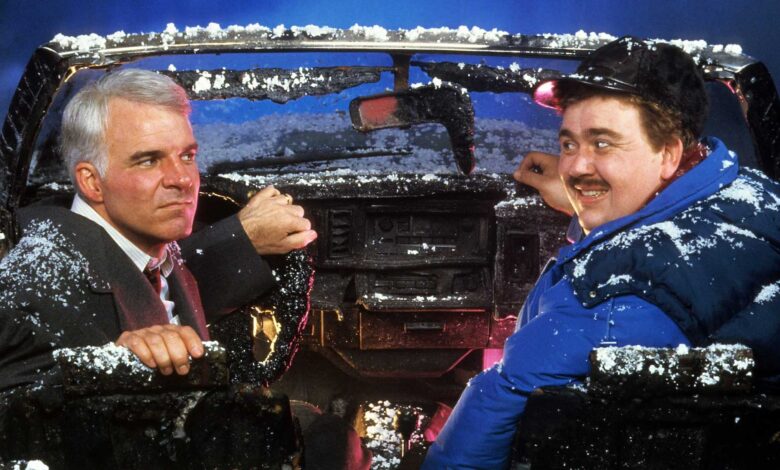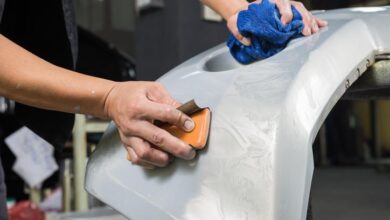Planes, Trains and Automobiles: How Tricking Steve Martin Changed the Ending

As it turns out, Candy’s Del Griffith is a widower, and sadder than that, one who feels the loss of his wife so profoundly that he’s elected to live permanently on the road. He has no home and, thus, nowhere to spend Thanksgiving. Still, he busts his good-natured (if oblivious and impolite) keester in order to get Martin’s family man Neal Page home for Thanksgiving. And most miraculously of all, the poignant way this is all revealed in Planes, Trains and Automobiles was a last minute fix in post-production where Hughes utilized some footage Martin never even knew was filmed in order to create the greatest emotional catharsis of the picture.
John Hughes, Steve Martin, and a Beautiful Expression
Planes, Trains and Automobiles was likely one of the more personal films in Hughes’ career. In addition to the film starring an advertising executive (Martin’s Neal) making the brutal commuter flight between New York City and Chicago, the film also was loosely based on the worst Thanksgiving of the filmmaker’s life. Back in his copywriting days, Hughes really did intend to spend only an afternoon in NYC before returning home to Chicago for the holidays. Instead he endured five days on the road because of weather delays, which landed him all the way in Phoenix, Arizona. During those trials and tribulations, he spent most of the holiday with a salesman who’d seen it all before.
It is not hard to imagine Del and Neal represent two sides of Hughes’ persona: the world-weary salesman, who like Hughes’ own father had that human touch that could connect with anyone, and, well, the guy who lives in the elite suburbs of Chicago and who would rather just be home for the holidays. For the film, Hughes cast two actors he incredibly admired, one of whom he worked with before in Candy, and one whose career he had watched from afar.
“I thought Steve Martin was the funniest man alive,” Hughes told the Boston Herald in 1987 (via Vanity Fair’s oral history of the movie). “He was the first real rock-and-roll comedian who appeared in arenas, not little clubs. So I was a little in awe when he came to my home for a meeting for Planes, Trains.”
That might be true, but Martin is known in the industry for both his precise perfectionism and, according to some folks, a professional aloofness that, in retrospect, may not have been a natural fit for an unapologetic sentimentalist like Hughes. According to film journalist Tim Appelo (via IndieWire), Martin’s old colleague Tom Smothers once remarked, “Spending time with [Martin] is like being alone.” What this meant is that while Martin was a comedic and improvisational genius, he always was in control of how he played the characters. Martin, the actor, determined how much of himself he liked to reveal on set—which was apparently little.
Looking back on working with Martin, Hughes reportedly said, “You say, ‘Gee, Steve, why don’t you do this, why don’t you’—he does what he wants to do, you know?” When it came to getting comedic energy while playing off Candy, it could be dynamite, but there was never a moment where Martin was caught off-guard or as emotionally vulnerable as Hughes wanted.



